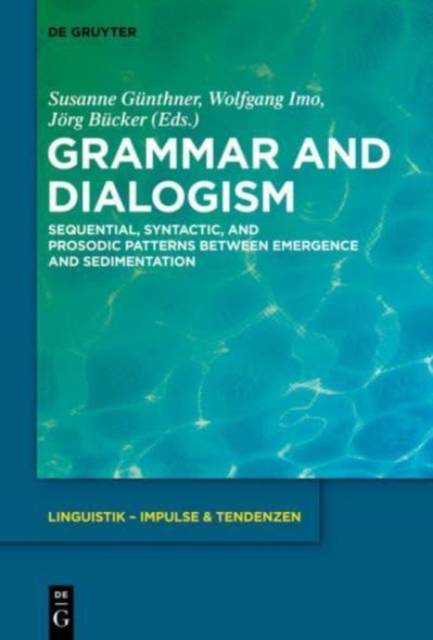
- Retrait gratuit dans votre magasin Club
- 7.000.000 titres dans notre catalogue
- Payer en toute sécurité
- Toujours un magasin près de chez vous
- Retrait gratuit dans votre magasin Club
- 7.000.000 titres dans notre catalogue
- Payer en toute sécurité
- Toujours un magasin près de chez vous
Grammar and Dialogism
Sequential, Syntactic, and Prosodic Patterns Between Emergence and Sedimentation
Description
This volume aims at analyzing the relationship between the dialogical accomplishment of spoken talk-in-interaction on the one hand and entrenched patterns of linguistic and socio-cultural knowledge (constructions, frames, and communicative genres) on the other. The contributions analyze linguistic patterns in different languages such as English, French, German, and Swedish. Methodologically, they take up the usage-based position that structural and functional aspects of language use need to be studied empirically and "bottom-up" Since grammatical structure arises as the entrenched result of recurrent language use, its study should start with the local organization of natural talk-in-interaction before moving on to more complex and abstract relationships between linguistic structure, linguistic meaning, and socio-cultural activity/event patterns. Furthermore, they argue that Dialogism provides a promising starting point for a usage-based approach to linguistic patterns as both emerging (i.e. constructed in response to the situational circumstances of talk-in-interaction) and emergent (i.e. constructed with regard to symbolic units as parts of socially and culturally shared knowledge).
Spécifications
Parties prenantes
- Editeur:
Contenu
- Nombre de pages :
- 376
- Langue:
- Anglais
- Collection :
- Tome:
- n° 61
Caractéristiques
- EAN:
- 9783110357967
- Date de parution :
- 13-10-14
- Format:
- Livre relié
- Format numérique:
- Genaaid
- Dimensions :
- 155 mm x 231 mm
- Poids :
- 680 g






